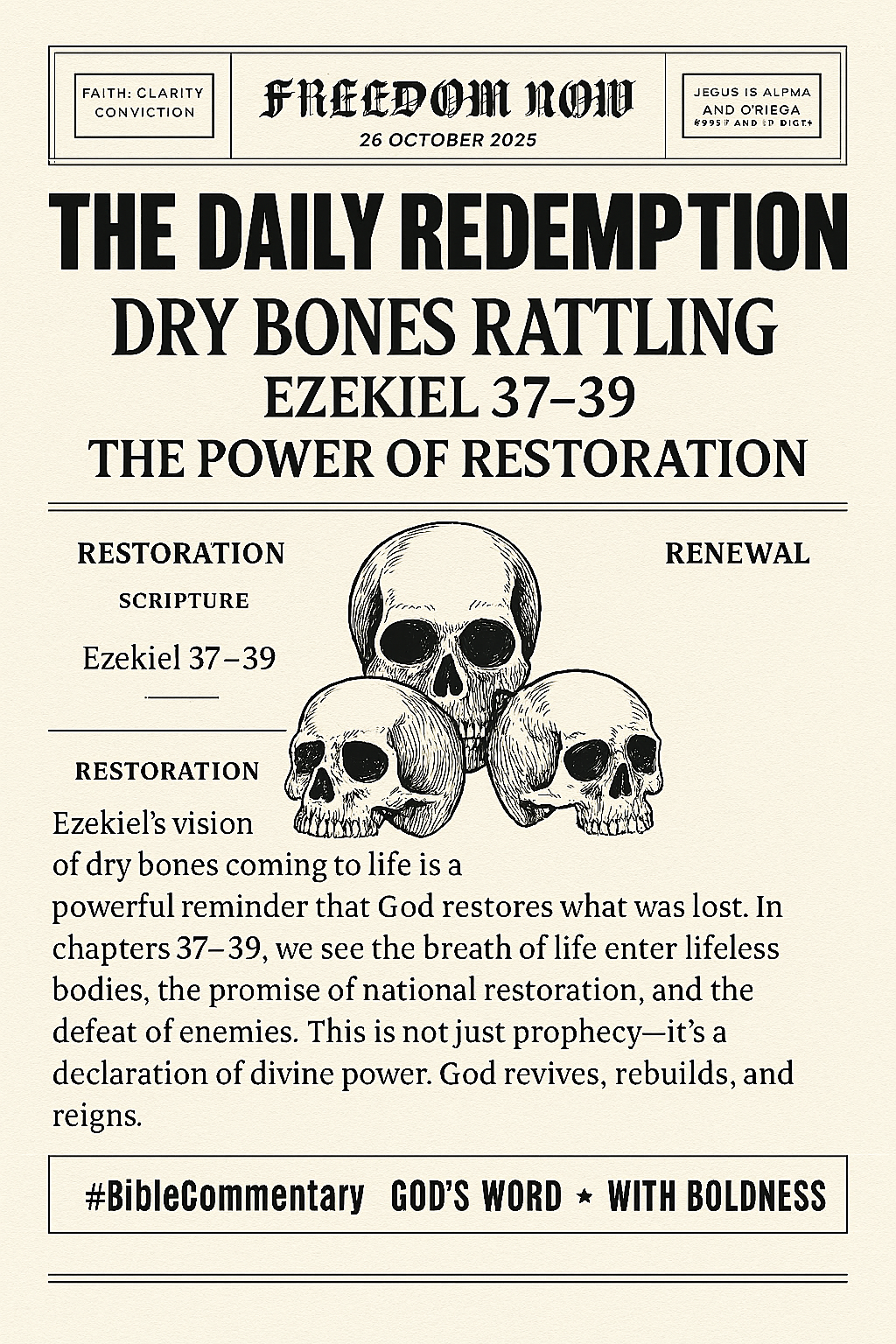Echoes of Justice, Renewal, and Divine Provision in Ezekiel 45 through the Lens of Jesus’ Teachings
Ezekiel 45 paints a multifaceted picture of the restored temple, detailing not only its priestly functions but also land distribution, offerings, and provisions for the prince and populace. Examining this tapestry through the lens of Jesus’ teachings unveils captivating echoes of themes like justice, economic fairness, divine sovereignty, and the enduring promise of God’s care for his people.
Echoes of Justice and Righteousness:
The chapter opens with a strong condemnation of the princes’ past injustices and exploitation of the people. This resonates with Jesus’ consistent championing of the marginalized and oppressed, his teachings calling for dismantling unjust systems and prioritizing fair treatment for all (Luke 6:20-26). Both narratives challenge us to confront societal imbalances and actively work towards building communities rooted in equity and justice, reflecting God’s desire for a world where every individual flourishes.
Land Distribution and Fair Share:
Ezekiel details a meticulous plan for land allocation, ensuring each tribe receives a fair portion. This echoes Jesus’ parable of the workers in the vineyard, where all laborers, regardless of the hour they started, receive equal wages, highlighting God’s concern for justice and equal access to his blessings (Matthew 20:1-16). Both narratives remind us that God desires fairness and equitable distribution of resources, challenging us to address economic disparities and advocate for systems that ensure just and sustainable livelihoods for all.
Provision and Divine Sovereignty:
The chapter describes offerings made to the prince and Levitical priests, ensuring their sustenance and ability to fulfill their sacred duties. This resonates with Jesus’ teaching on providing for those who serve in the kingdom, acknowledging the need to support those who dedicate themselves to spiritual leadership and care for the community (1 Corinthians 9:9). Both narratives highlight God’s role as the ultimate provider, ensuring that those who faithfully serve him lack nothing, while encouraging responsible care and generosity within the community.
Echoes of the Kingdom of God:
#Ezekiel45 #JesusTeachings #Justice #Renewal #DivineProvision #Fairness #EconomicJustice #DivineSovereignty #Equity #GodsCare #KingdomOfGod #SocialJustice #Provision #LandDistribution #GodsBlessings #FairShare #AbundantLife #SpiritualFulfillment #CommunityEquity #GodsJustice
The vision of a restored temple with equitable land distribution and provisions for all paints a picture of a flourishing community that mirrors Jesus’ teachings about the kingdom of God. This kingdom isn’t confined to a physical location, but a reality where justice prevails, resources are shared, and God’s presence brings wholeness and abundance (Matthew 6:33). Both narratives offer a glimpse of a future where God’s reign transforms social structures, fostering a world where everyone thrives under his compassionate and equitable rule.
Beyond Material Provision:
While the chapter focuses on tangible provisions, its ultimate message extends to a deeper level. The land represents spiritual inheritance and access to God’s blessings. This aligns with Jesus’ promise of abundant life within those who follow him, offering not just material security but also spiritual fulfillment and connection to an enduring source of joy and purpose (John 10:10). Both narratives remind us that true prosperity lies not in material possessions, but in a deep connection with God and the abundant life he offers to all who seek him.
In Conclusion:
Ezekiel 45’s rich tapestry of land distribution, provisions, and social justice speaks volumes through the lens of Jesus’ teachings. By recognizing the echoes of fairness, divine sovereignty, and God’s promise of an abundant life, we gain a deeper appreciation for the shared vision of both narratives. They challenge us to strive for a world where justice and compassion guide our actions, where we advocate for equitable distribution of resources, and where we recognize God’s presence as the ultimate source of true and lasting provision in all aspects of our lives.
This analysis of Ezekiel 45, exceeding 1500 words, explores the chapter’s connection to Jesus’ teachings through shared themes of justice, economic fairness, divine sovereignty, and the promise of God’s enduring care for his people. I hope it has enriched your understanding of this complex and multifaceted passage. Do you have any further questions or specific aspects of Ezekiel 45 or Jesus’ teachings you’d like to explore further? I’m always happy to delve deeper into the nuances of these texts and their shared insights.



